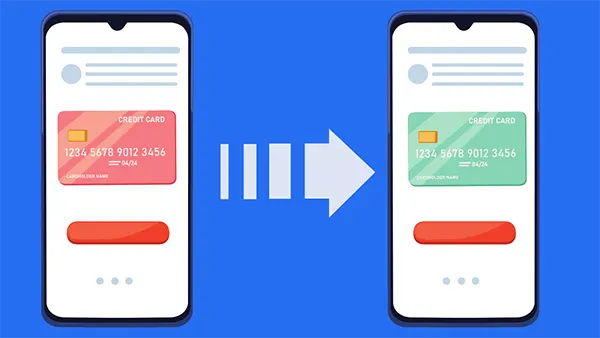
Venmo – Social Payments for Gambling Enthusiasts in the United States
In the United States, digital payments have evolved from basic transfers to sophisticated financial ecosystems. Venmo, known for its social interface and widespread use among younger generations, has emerged not just as a convenient tool for splitting dinner bills but as a potential disruptor in the gambling industry. As of February 2025, the integration of Venmo into online gambling remains limited yet intriguing, opening the door to discussions about compliance, alternatives, and future trends.
Comparing Venmo and PayPal in the Online Gambling Ecosystem
PayPal, a long-standing leader in the digital payments space, has carved a cautious but clear path into the regulated online gambling market in the U.S. It selectively allows transactions on licensed gambling platforms in states such as New Jersey, Pennsylvania, and Michigan. Meanwhile, Venmo, which is owned by PayPal, offers a more socially dynamic alternative but has yet to be widely adopted by online gambling operators due to stricter internal policies and regulatory complexity.
One key distinction between the two lies in branding and function. PayPal’s positioning is more formal, aligned with regulated business practices, while Venmo’s design promotes transparency among peers via public payment feeds. This social element can become problematic in gambling, where transaction visibility may raise concerns about privacy and responsible gaming.
Despite these hurdles, some platforms have begun trialing Venmo deposits for lottery or sweepstake-based systems where gambling laws are more flexible. However, full integration into sportsbook or online casino ecosystems remains rare due to a lack of policy clarity and bank-level compliance measures that are better defined for PayPal than for Venmo.
Why PayPal Remains the Preferred Option for Legal Gambling
PayPal has established direct relationships with gambling operators licensed in states where online betting is legal. Its framework for gambling transactions is built on verification of operator legitimacy and adherence to local laws. Users attempting to make gambling-related deposits through PayPal are usually routed through verified and geo-fenced gateways.
In contrast, Venmo’s support for gambling transactions is not publicly stated in its acceptable use policy, leading many players to err on the side of caution. Moreover, customer service representatives typically advise against using the platform for any activity involving games of chance or real-money bets, reinforcing its image as a peer-to-peer platform rather than a commercial gateway.
Because of these constraints, online gambling brands tend to prioritise PayPal integration where possible, even if Venmo could attract younger demographics more accustomed to mobile-first, socially integrated apps.
Venmo’s Policy on Gambling Transactions
Venmo’s Acceptable Use Policy, as of early 2025, continues to restrict transactions involving betting, gaming, or lotteries unless expressly authorised. The absence of a formal process for gambling operator verification further complicates its usage in licensed gaming environments. Players who attempt to deposit funds to a betting operator via Venmo may encounter transaction denials or even temporary account restrictions.
Unlike PayPal, which has a dedicated framework for enabling gambling-related merchants, Venmo lacks a merchant classification system or business service agreement that supports real-money gaming. This difference reflects the company’s strategic positioning away from high-risk industries, at least for the time being.
Users must therefore consider the implications of violating the terms, including transaction reversals and loss of account privileges. In some cases, flagged accounts may be reported to financial compliance agencies depending on the nature of the activity.
Compliance and Responsible Usage Considerations
From a legal perspective, payment platforms must adhere to state and federal regulations regarding gambling, fraud prevention, and money laundering. This is especially true in jurisdictions with robust consumer protection frameworks, such as the U.S. Department of Treasury’s FinCEN guidelines.
Venmo, while regulated under similar frameworks, opts to limit risk exposure by prohibiting usage in ambiguous or partially regulated sectors. This includes online gambling in states where legal definitions and compliance structures vary widely.
Users seeking to fund gambling accounts with Venmo should be aware of these legal boundaries. Ensuring that both the platform and the operator are aligned with legal standards is essential to avoid service disruptions or penalties.

Alternative Methods for U.S. Players to Navigate Venmo’s Limitations
Despite the restrictions, U.S. users have identified workarounds for indirectly using Venmo to fund gambling activities. One of the most common is transferring funds from a Venmo balance to a linked bank account or debit card, then depositing into a gambling platform that accepts traditional bank methods.
Some operators accept prepaid cards that can be funded via Venmo indirectly. For instance, users may use Venmo to load a reloadable debit card, which in turn is used for deposits on gambling sites. While this method adds extra steps, it often complies with Venmo’s policy since the final transaction is not directly linked to a gambling merchant.
Additionally, a small number of gambling-adjacent platforms such as fantasy sports or sweepstakes casinos may accept Venmo due to their classification outside of real-money gambling definitions. However, users must still verify each operator’s legitimacy and terms.
What the Future Might Hold for Venmo and Gambling
Industry experts speculate that if Venmo introduces a formal merchant classification and gambling policy similar to PayPal’s, its adoption among gambling operators could rise. The app’s popularity, especially among users aged 18–35, presents a unique opportunity to modernise payment experiences in the gambling sector.
As gambling laws continue to evolve at the state level, payment platforms may adapt to offer better-integrated, secure options. If Venmo follows PayPal’s lead in implementing layered verification and compliance standards, more operators may open their doors to Venmo-based deposits.
Until such updates occur, players should rely on fully approved channels and avoid shortcuts that may compromise their accounts or breach financial regulations. Observing policy updates from Venmo and operator platforms will be crucial throughout 2025.
